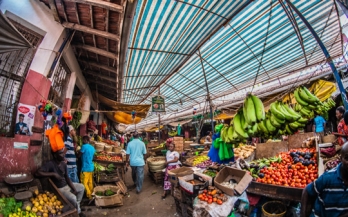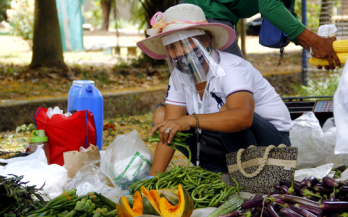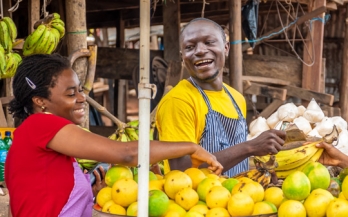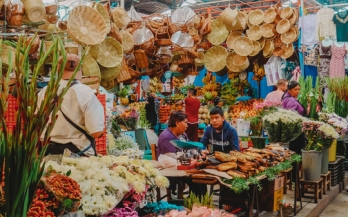


Looking ahead
EP 04
As 2020 comes to an end, a difficult year for most, we have dedicated this episode not only to…
30 Minutes▶ Play this episode

GAIN Working Paper Series 15 - Project DISRUPT - Game-changing innovations for healthy diets on a healthy planet
- 22/12/2020
The global food system is a major driver of environmental degradation, ill health, premature mortality and inequity. To enable resilient, affordable, safe and nutritious diets for the current and growing global population while restoring and safeguarding our environment, we need to urgently innovate food system solutions that work for both people and planet.
2020: A year of pain, a year of revelation, a year of optimism
As we draw to the end of 2020, COVID-19 rages on; hunger numbers are on the increase; and we are not on track to meet the 1.5C Paris target to limit global warming. According to the Johns Hopkins COVID-19 Dashboard, 72 million people have been infected with the novel coronavirus and 1.7 million have died. And counting. According to the IMF, the measures taken to combat the virus have led to GDP declines of around 4-10%, depending on the country.
Global leaders commit more than $US3 billion to address hunger and nutrition crisis
The Governments of Canada and Bangladesh, in partnership with the Government of Japan, today hosted a virtual launch of the Nutrition for Growth Year of Action, setting in motion a year-long effort to address a global hunger and nutrition crisis that has been exacerbated by the COVID-19 pandemic.
Impact of COVID-19 on Kenya’s Food Systems - Situation Report I
- 14/12/2020
The COVID-19 pandemic is a multiplier of vulnerability, compounding threats to food security and nutrition (FSN), while exposing weaknesses in food systems. This report summarises the current situation of Kenyan food systems amidst COVID-19 with a special emphasis on small and medium-sized enterprises (SMEs) and how nutritious foods value chains are changing.
Webinar – The impact of the COVID-19 crisis on global food security
Online Webinar, Global
COVID-19 is disrupting humanitarian aid and development cooperation projects globally. Furthermore, the pandemic has placed unprecedented pressure on food supply chains, undermining access to food for many.
The Making Markets Work for Nutritious Foods Programme: It’s time to fix the information failures in our food systems
Ensuring markets provide enough nutritious and safe food to those living in poverty in low income countries is an urgent priority. Many in such markets across the world lack access to affordable foods that are safe and rich in the nutrients needed to sustain life and livelihoods.
76th Session of the UN General Assembly (UNGA 76)
- New York City, United States
The 76th session of the UN General Assembly (UNGA 76) will open on Tuesday, 14 September 2021. The first day of the high-level General Debate will be Tuesday, 21 September 2021.
The Food Systems Dashboard is a new tool to inform better food policy
- 13/05/2020
The Food Systems Dashboard brings together extant data from public and private sources to help decision makers understand their food systems, identify their levers of change and decide which ones need to be pulled. The Global Burden of Disease study showed that unhealthy diets contribute to 11 million deaths per year.